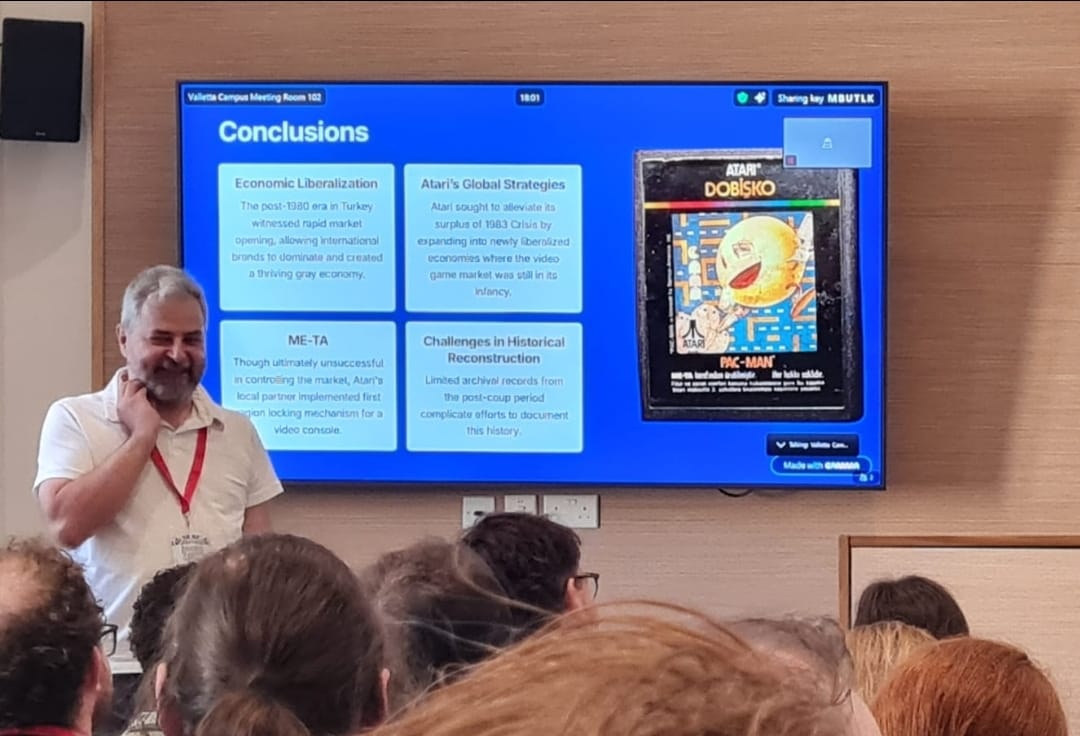This year, two members of the GRADE network participated in the 2025 Digital Games Research Association (DiGRA) Conference, held from June 30 to July 4 at the University of Malta’s Valletta campus. Supported by the ITC Conference Grant scheme, Dr. Arda Erdikmen and Dr. Ivo Furman represented the network at this major international event, which brought together over 500 scholars, practitioners, and archivists from around the world. DiGRA once again affirmed its role as the leading global forum for interdisciplinary research on digital games, offering a vibrant platform for academic exchange and collaboration.
Among the contributions from the GRADE delegation was a joint presentation by Erdikmen and Furman, focusing on the overlooked history of ME-TA, a Turkish company that played a pivotal role in distributing the Atari 2600 during the 1980s. Their talk explored how ME-TA adapted imported gaming technologies to the Turkish market through unofficial distribution, region-specific branding, and hybrid localization practices. Drawing on archival sources, oral history interviews, and visual documentation, the presentation provided a compelling case study of how global platforms were transformed within local infrastructures and political contexts. The session generated engaging discussion on platform politics and the value of grassroots perspectives in digital game historiography.
Participation in DiGRA directly supports the goals of the GRADE network, a COST Action focused on researching the grassroots dimensions of digital culture across Europe. GRADE fosters interdisciplinary collaboration, provides support for early-career researchers, and prioritizes the preservation of underrepresented computing histories. The 2025 conference served as an important opportunity for members to present their work, form new connections, and engage with a diverse international research community.
By highlighting cases like ME-TA and emphasizing non-Western narratives of digital creativity, GRADE’s involvement at DiGRA 2025 demonstrated the network’s ongoing commitment to inclusive, context-sensitive, and historically informed media scholarship. As digital games continue to evolve as both cultural texts and global commodities, conferences such as DiGRA remain essential forums for critical reflection and collective knowledge building.

